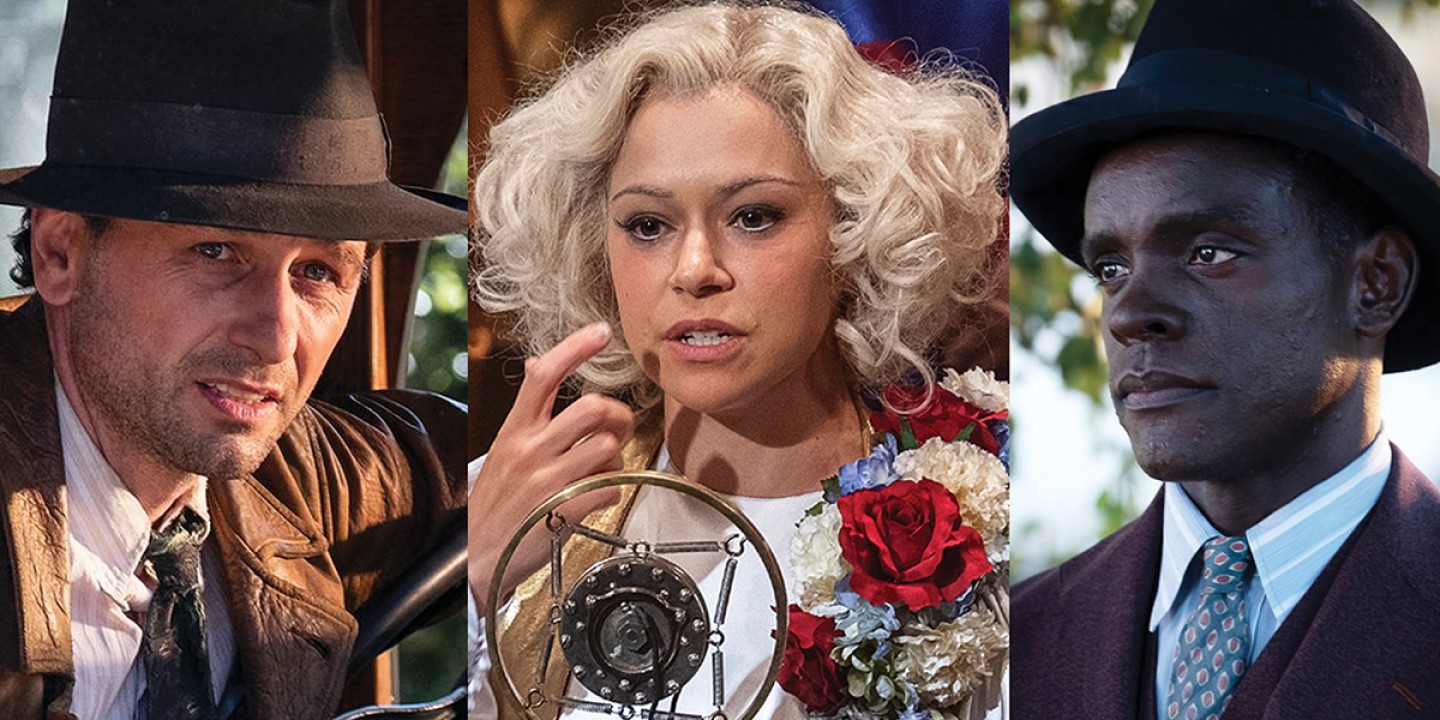A Perry Mason that doesn’t trust institutions
In the HBO reboot, even the deacons and the police are corrupt.

The new HBO reboot of Perry Mason has all the components of a prestige drama: an outstanding cast, a complex plot, violence and gore, and a brooding antihero as a main character. But its most daring component is its insistence that the grittiest, most dangerous work takes place inside conventional institutions like a courtroom.
Created by fiction writer Erle Stanley Gardner, the Perry Mason character is familiar to most Americans from the 1960s television show, which starred Raymond Burr as the brilliant defense attorney who takes impossible cases and cracks them on the stand. This reboot imagines an origin story for Mason (played now by Matthew Rhys), whom we meet as a down-on-his-luck private eye. He’s taking photos of movie stars having illicit sex as he struggles to hang on to his family dairy farm near the Mexican border.
Read our latest issue or browse back issues.
At the start of the show, Mason has all the hallmarks of a classic noir detective. He is haunted by his service in World War I, he drinks too much, and he rarely sees his kid. But his wound goes deeper: everywhere he has been taught to look for American values, he sees corruption—the military, the police, the law. He feels the pain of this too much to let it go. His knowledge becomes a yoke of cynicism wearing him down, but his cynicism is also an armor worn to protect a tender heart that wants to believe that justice and truth are possible.
How Mason goes from gumshoe detective to famous defense attorney is the drama of this first season. The show leans into its 1930s Los Angeles setting, where Hollywood is just beginning to flex its full power and spectacle trumps substance. The high-profile case that pulls Mason into the law is a media sensation, and the trial has high political stakes. To add to the drama, the case is entangled with the largest church in Los Angeles: the Radiant Assembly of God, led by Sister Alice (Tatiana Maslany), who is modeled after Aimee Semple McPherson, the real-life founder of the Foursquare Church and the first nationally successful Christian radio presence.
Sister Alice is an electrifying preacher who got her start as a traveling faith healer. Her sermons are part tent revival and part drama spectaculars: the Depression era equivalent of fog machines and light shows. Sister Alice’s extravagant claims to perform miracles are played against the spectacle of a trial that ignores facts in order to make a splashy conviction—they are two sides of the same Hollywood coin. Corrupt police and corrupt deacons aren’t all that different; they both accrue money and power under the cover of a higher purpose. As the case unfolds, we see them work together.
But Sister Alice is a more complicated character than a mere huckster. She is also a victim of the same corruption that dogs Mason’s world-weary cynicism, and her direct access to the Holy Spirit helps her survive in a patriarchal world. Mason sees her church as just another corrupt institution, but he also seems to recognize her as a straight shooter whose Pentecostalism is her own version of self-protection. The show isn’t quite sure what to do with this connection: Are they forming an alliance? Toward what end?
So, too, with the introduction of Paul Drake (Chris Chalk), a black police officer who desperately wants to hold on to his moral compass against the tide of white supremacy that refuses to see him as a man. All three—Mason, Sister Alice, and Drake—exist on the edges of respectability, and they are aligned because they all know respectability is itself corrupt. Whether or not the show has something interesting to say about these parallels remains to be seen.
The most surprising thing about this Perry Mason is that it starts on these edges and then has our hero leave his lurking days behind to join the law profession. This isn’t an optimistic embrace of the law—certainly not the Perry Mason that inspired a young Justice Sotomayor to become a lawyer. This Mason treats the law like one more detective’s ploy, a necessary ruse to see justice done. The only difference is that Mason begins to realize that winning in the courtroom has life and death stakes. It isn’t a less corrupt institution; its effects are just more powerful.
This is not exactly a rousing endorsement of working inside the system to change it. But it is a real shift in the antihero tropes of gangsters, drug dealers, and spies to suggest that the next gritty frontier is inside mainstream institutions. As Mason improvises his way into the law, we can ponder how successful a show like the original Perry Mason was in helping to create fictions about what law is and could be. There is something thrilling in wondering what new stories we need to tell about institutions of public life when we no longer trust that they are inherently just or righteous.
A version of this article appears in the print edition under the title “Corruption everywhere.”







